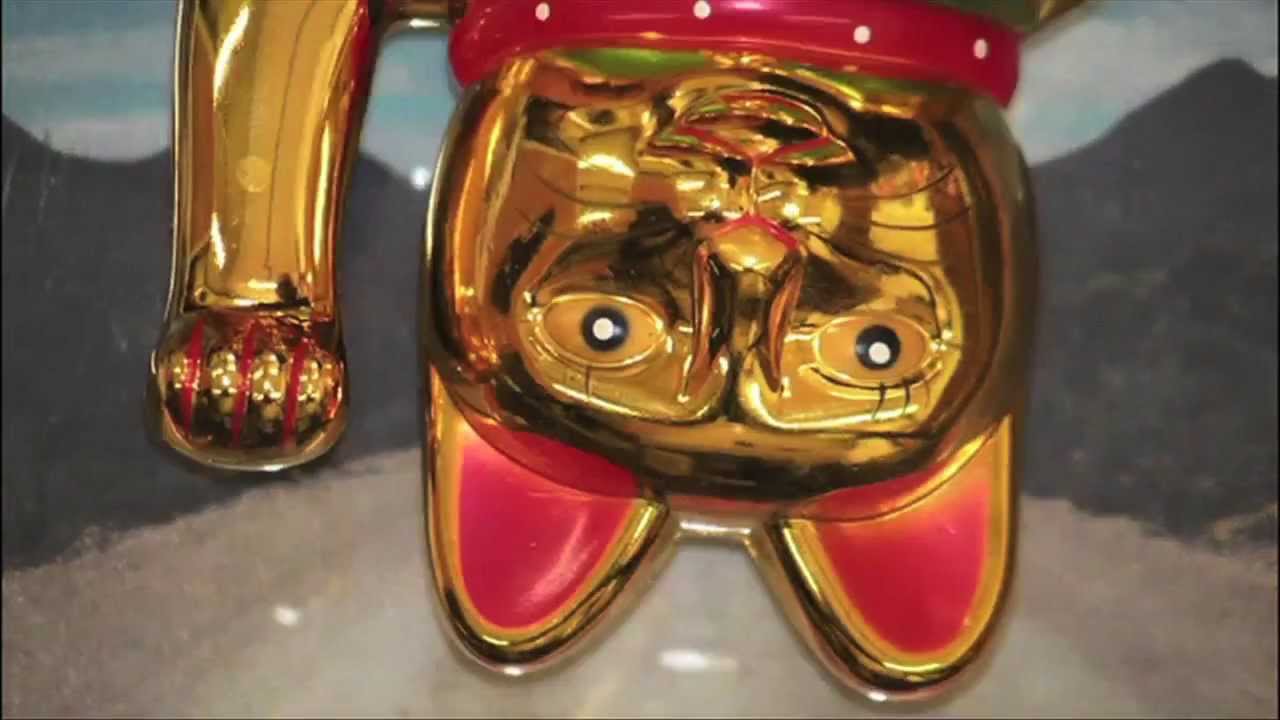This weekend at Festival No. 6, taking place in Portmeirion in Gwynedd, North Wales, Dutch Uncles’ Robin Richards has got his work cut out for him, playing two sets, one with his band and the other a contemporary classical piece.
Washington Trapeze, an instrumental work in three movements, wends its way through some of the choppy angularity and complexity you’d expect of the band, to passages of sweeping gracefulness and kinetic drama, overlaying tuned percussion and guitars on top of the string ensemble core. After the performance, which will see Richards joined by Joe Duddell, the conductor and Festival No. 6’s resident composer, who’s previously collaborated with Elbow and Richard Hawley, a couple of his fellow Uncles and a classical ensemble, the piece will get a digital release on Monday, September 16 – pre-order here.
Ahead of that though, we’re hugely excited to host a first spin of the piece and asked Richards a few questions about it, so scroll down to listen and read his answers. Dutch Uncles’ tour dates supporting Everything Everything, and a November/December run accompanied by a string ensemble and supported by Outfit, as well as their new video for ‘Nometo’ from this year’s Out Of Touch In The Wild LP, follow at the foot of the piece.
How did Washington Trapeze come about? Who approached who?
Robin Richards: I was already working on the piece but when writing for a band – that hopefully has some momentum – it’s sometimes very difficult mentally to grant yourself the time-out to make alternative compositions, away from the normal context of what could eventually be a Dutch Uncles track… the next album is always looming! Joe approached me to do something different once he was appointed resident composer of Festival No. 6 and Dutch Uncles were already booked to play. I felt this was the perfect excuse I could give myself to get the track finished and subsequently recorded (produced and mixed by Andy Proudfoot from DU), making it sure it was a self-contained piece that could be performed with the musicians Joe had put together for his residency.
Is it your first classical contemporary piece? If so, how did you set about composing it?
RR: I’ve written many pieces for my degree in composition but I guess this is the first time in a while I have set myself the goal of writing a fully-formed, conceptual piece that doesn’t (or couldn’t) fit into the context of the band. All Dutch Uncles’ tracks start life as instrumental (and maybe neo-classical) pieces but then go on to be developed, shaped and then placed into a pop context.
After writing the initial lines on piano I knew that to expand the piece, I needed a concrete theme from which to devise subsequent sections.
Why did you settle on the trapeze as subject matter for the piece?
RR: I had recently become interested in American circus arts and stumbled across a certain routine called ‘The Washington Trapeze’. It is said to be one of the most technically demanding circus acts, where the aerialist performs headstands whilst on a static or swinging trapeze. I wanted to use this routine as the main theme for the composition, creating music that would depict the mental and physical state of a trapeze artist before and during he/she performed the intricate routine, and also portray elements of the routine itself.
You mention Steve Reich and Stravinsky as influences – how did they make their imprint on Washington Trapeze?
RR: I would say that Steve Reich has always been a major influence in most things I have done. We actually got to meet him at the Proms – which was very exciting indeed – after he heard the Dutch Uncles track ‘X-O’ which we based around Reich’s Electric Counterpoint. The Stravinsky influence is more prevalent in the last Dutch Uncles record, Out Of Touch In The Wild. It is only with Washington Trapeze that I was able to pull influence from his stylistic diversity – something he was famous for – within a longer, individual track/piece, opposed to across a whole album made up of shorter compositions.
How did working with Joe Duddell help in realising the piece?
RR: Joe was my tutor whilst I did my degree in composition at Salford University. The truth be told, due to geography we have yet to rehearse the piece with all the musicians in one room. Full rehearsals with the ensemble as a whole will not happen until the day of the performance itself (the recording was done with different players). All preparation has been done remotely with Joe conducting the string quartet and myself rehearsing with Dutch Uncles members separately. This would normally make me nervous but my relationship with Joe and the trust we have built up means we can hopefully perform with confidence and is something I can very much look forward to.
SEPTEMBER
Fri 13 – Festival No. 6, Portmeirion
Sat 28 – Ringmaster Festival, Hopton Wafers
OCTOBER
Fri 4 – O2 Academy, Newcastle
Sat 5 – Picture House, Edinburgh
Sun 6 – ABC, Glasgow
Fri 11 – Ritz, Manchester
Sat 12 – Ritz, Manchester
Sun 13 – O2 Academy, Liverpool
Tue 15 – O2 Academy, Bristol
Wed 16 – Pyramid Centre, Portsmouth
Thu 17 – Cardiff University, Cardiff
Fri 18 – The Institute, Birmingham
Sun 20 – UEA, Norwich
Mon 21 – Rock City, Nottingham
Tue 22 – O2 Academy, Sheffield
Thu 24 – The Forum, London
Fri 25 – The Forum, London
NOVEMBER
Sat 30 – Belgrave Music Hall, Leeds
DECEMBER
Mon 2 – Komedia, Brighton
Tue 3 – O2 Academy 2, Leicester
Thu 5 – Islington Assembly Hall, London
Fri 6 – Academy 2, Manchester



